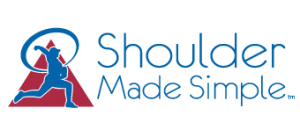Hunting Fitness
By: Dale J. Buchberger, PT, DC, CSCS, DACBSP
When it comes to hunting most hunters have a very detailed checklist of their equipment but have NO checklist of their body. The body checklist may include cardiovascular conditioning, upper body strength, lower body strength, CORE strength, balance, agility and flexibility. Improved fitness helps in many facets of hunting. Hunters with improved fitness have better balance, which is crucial when walking in uneven terrain. This increased balance and agility can prevent severe accidents. Each year there are at least a few bow hunters who fall on their own arrow or knife while climbing in or out of their tree stands. It only takes about 1-pound of pressure to drive a razor sharp hunting knife through any human muscle tissue it comes in contact with, so the potential for disaster is tremendous. There are several different low cost methods for making the season less of a grind.
First, try a “commercial workout” when you’re sitting around watching TV. Do push-ups and sit-ups during the commercials. During the summer months, this little amount of exercise can make a big difference. If you’ve been doing nothing recently, there’s no point in running. Going overboard right out of the gate will merely create pain and cause you to hurt yourself or burnout quickly. Consider a brisk walk instead. Walk for 10 minutes and slowly jog for two. Do this back-to-back for 30-40 minutes, four times a week, for 6-8 weeks. Slowly begin to lengthen the overall workout, then start increasing the jogging time until you are jogging 10-minutes and walking 5 minutes for the entire 40 minutes.
Some of the best reasons to incorporate strength training into your life include: Improving your balance and stability. The stronger your muscles the better balance they provide when under stress. If you’ve ever walked through the dark woods with a tree stand on your back and a bow and pack in your hands, you know how having strength, stamina and balance is important in the field. Burn more calories. Strength training increases your metabolic rate, burning more calories throughout the day and losing weight more quickly. Retain more muscle as you age. Adults lose between five and seven pounds of muscle every decade after age 20. Strength training will help prevent loss of muscle and strength, and help restore what you may have lost. Reduce and Help Prevent Low Back Pain. Setting up tree stands or lugging bags of goose decoys across a muddy field are not the most “back-friendly” activities. Strength training helps your back handle those stresses and recover from them more quickly, with less or no pain.
Here are a few different workouts that range from no cost to about $200. Any of these workouts can be performed 3-4 days per week.
TRX 15 minute workout three days per week – Pushups, Hi-Lo Pulls, Squats, Biceps curls, Triceps presses
Exercise ball – Walkout to a pushup, Ball squats, Ball bridges, Crossed extension over ball
No equipment – Squat, Pushup, Situp, Plank, Alt. Superman
Cardiovascular Exercise Success Tips: Find something you like to do; you’ll be more likely to do it consistently. Here are a few suggestions: Go for a hike. You can scout and get fit at the same time. If it isn’t too close to hunting season, you can do so without fear of spooking game. Hit the road. It doesn’t matter when, just put on some good shoes, grab some headphones and hit the road. If you’re a hunter, you probably have some form of foul weather gear; so never let the outside conditions stop you. Getting outside and going for a walk is good for the body and the mind. If walking feels too easy, try to pick up the pace and look for a route that has some hills to climb. Run the Dog. If you hunt with the dog, he’s got to get in shape for the season also. Getting outside and running the dog is great pre-season preparation for both of you. Plus having the dog with you and watching him work a field takes your mind off the fact that you’re actually exercising.
Getting and staying in shape is a must for improving your hunting performance. It is also a vital step in reducing the chances of injury and fatigue. If you have any questions about your conditioning program or have been hampered by problems in the past, you may benefit by getting assistance. Talk with your physical therapist or chiropractor about ways to customize your conditioning program. Don’t ask your hunting partners for back massages. New training programs should begin with a check-up that includes a doctor’s recommendations. It’s not just a casual suggestion. If you plan on having your hunting rig checked for any preseason issues, check the mirror first. Hunting season starts with a body check.




